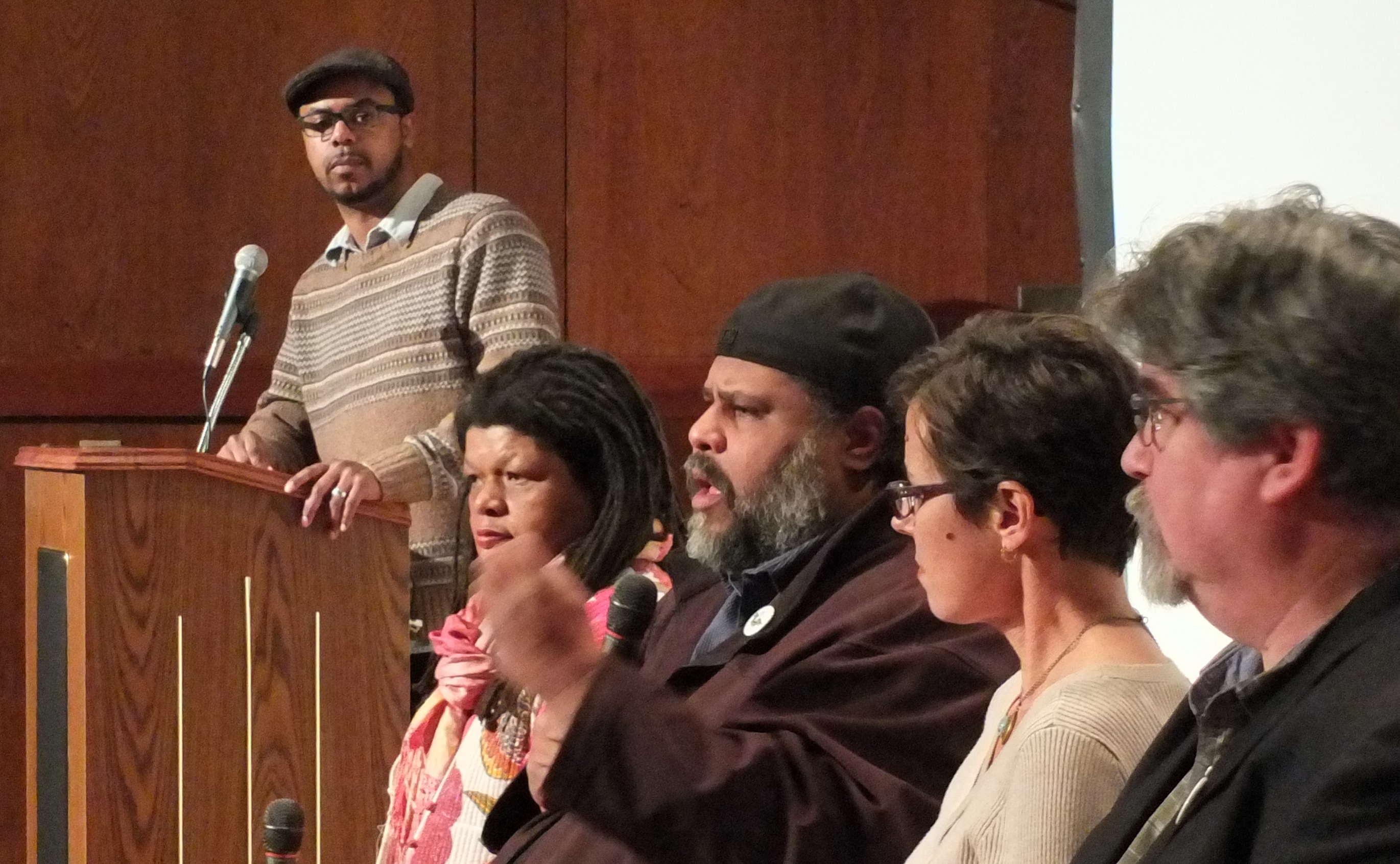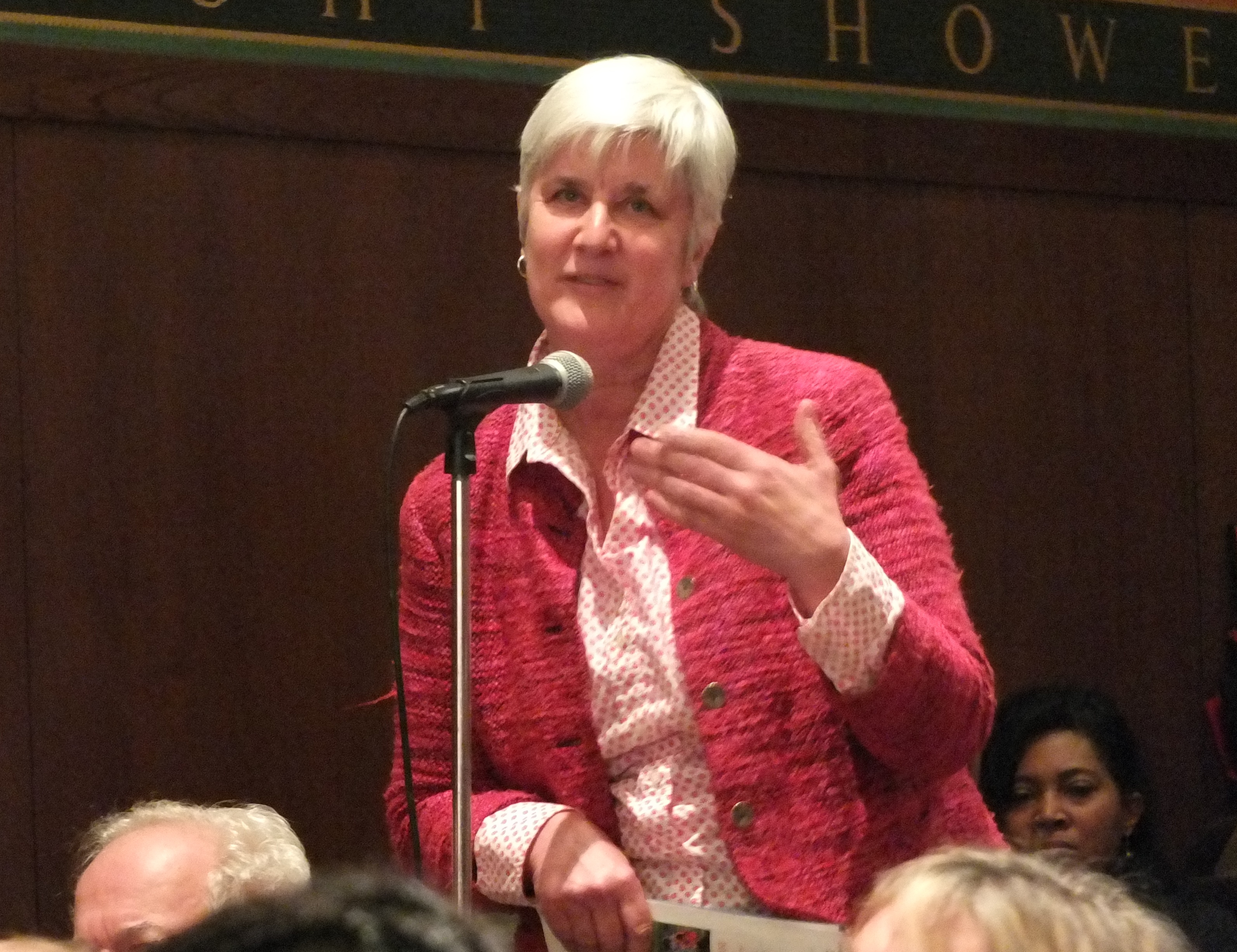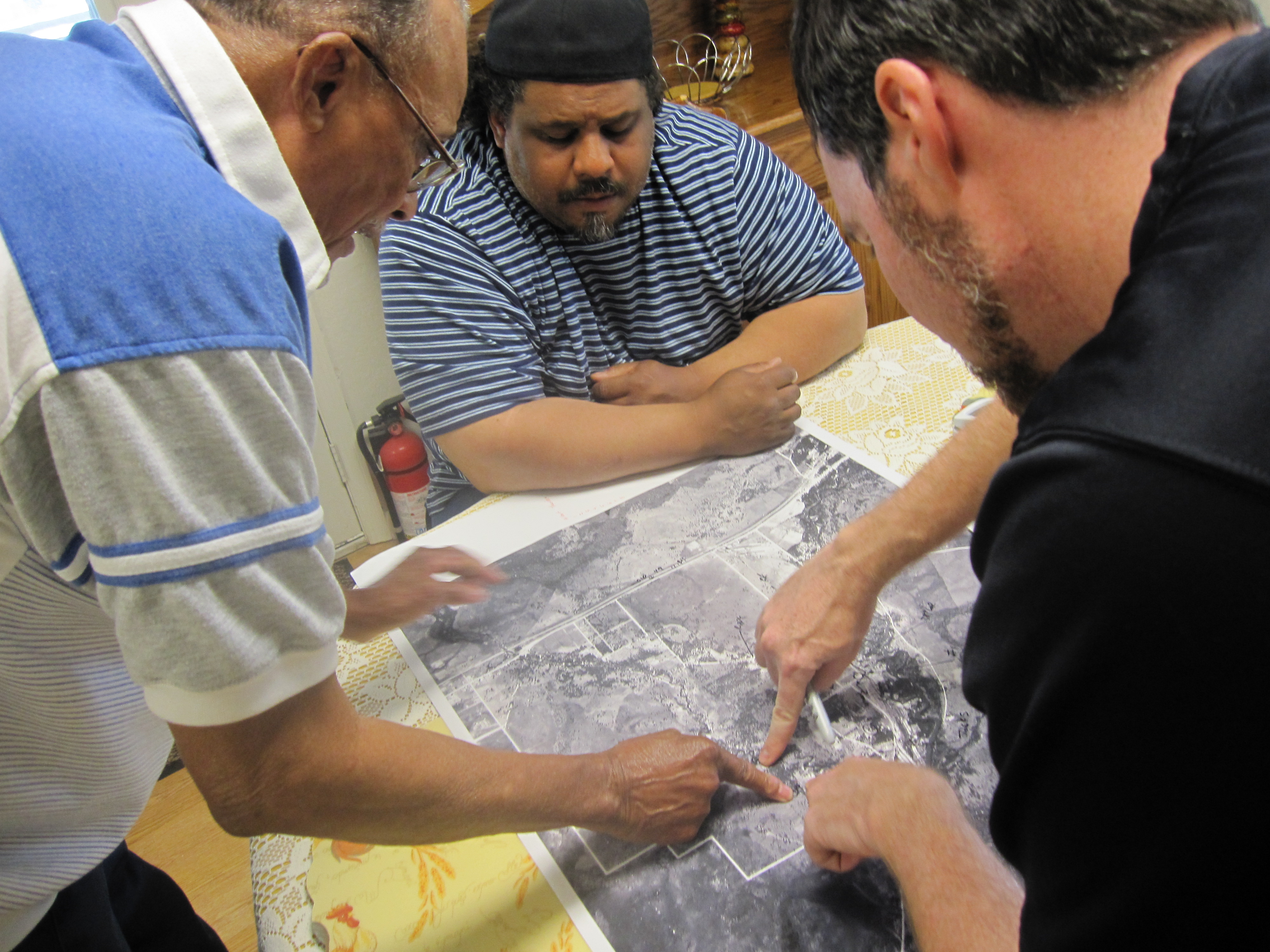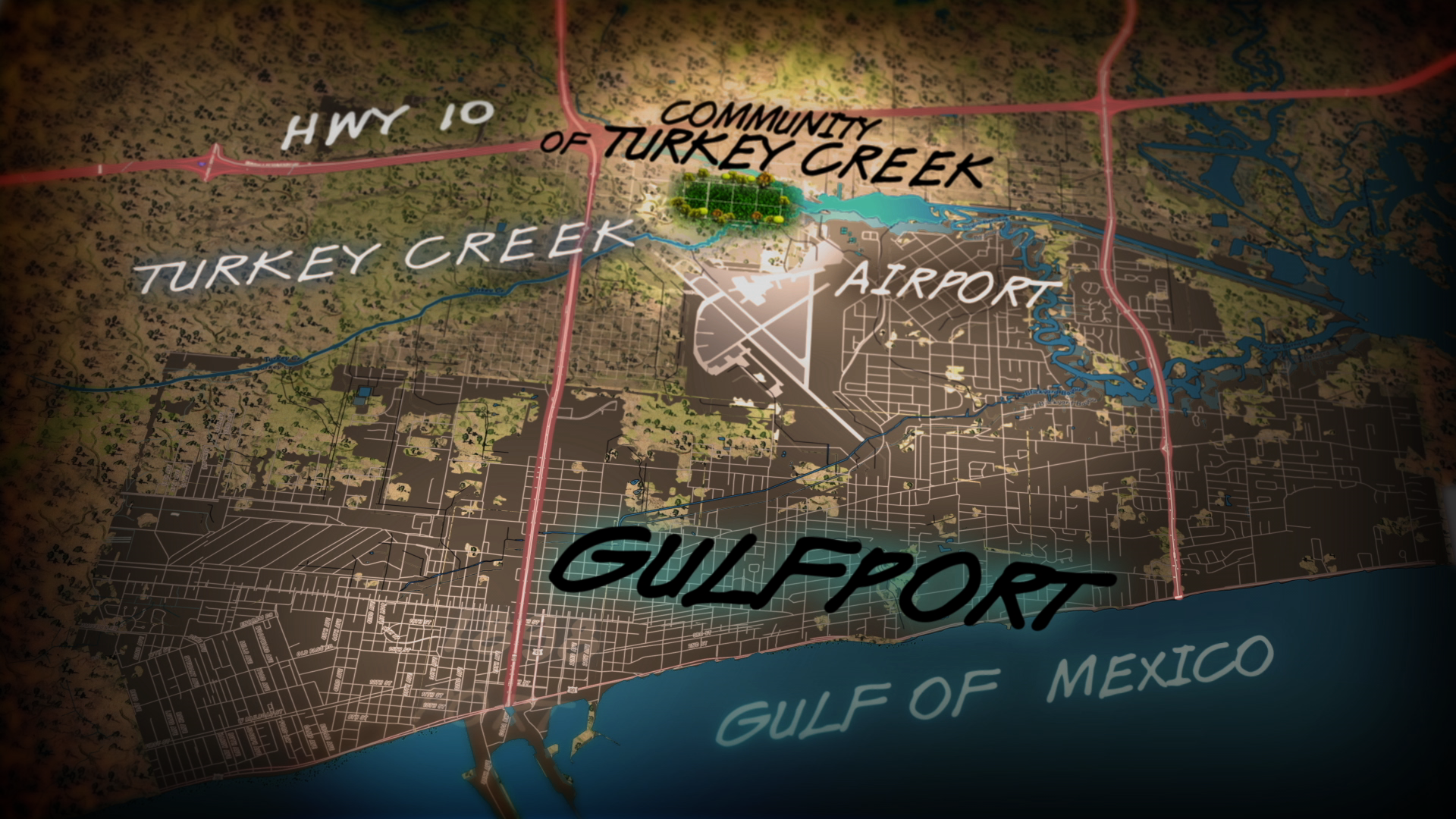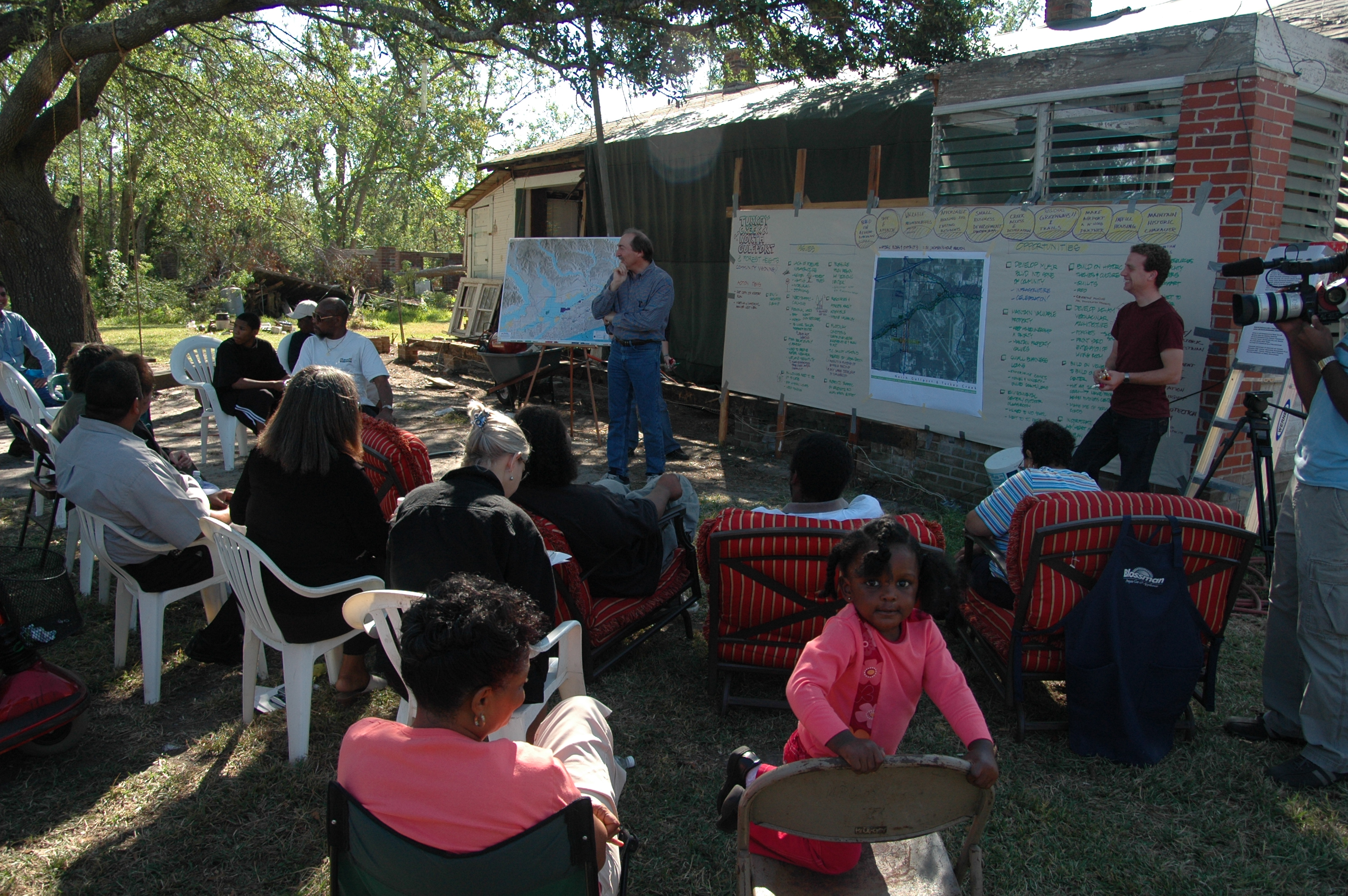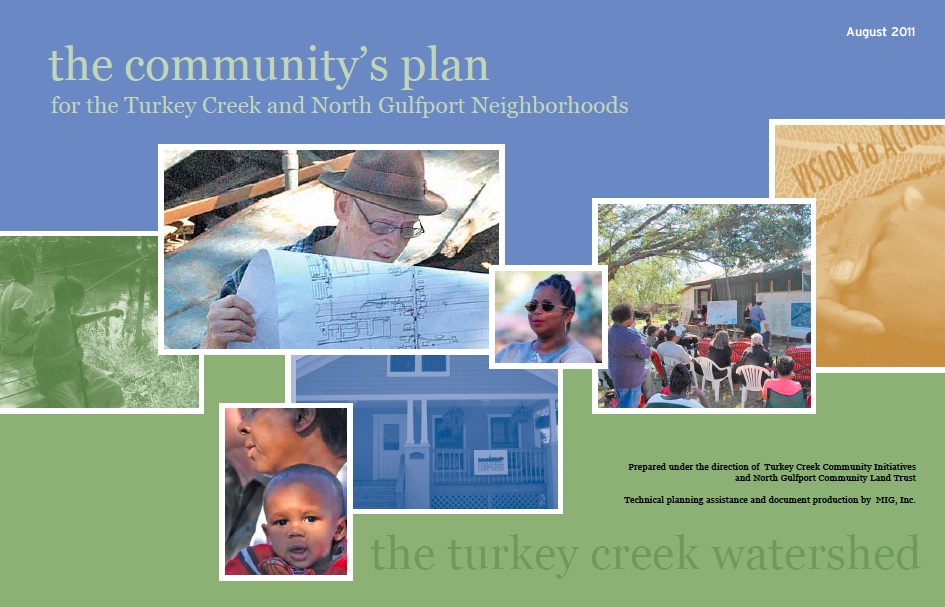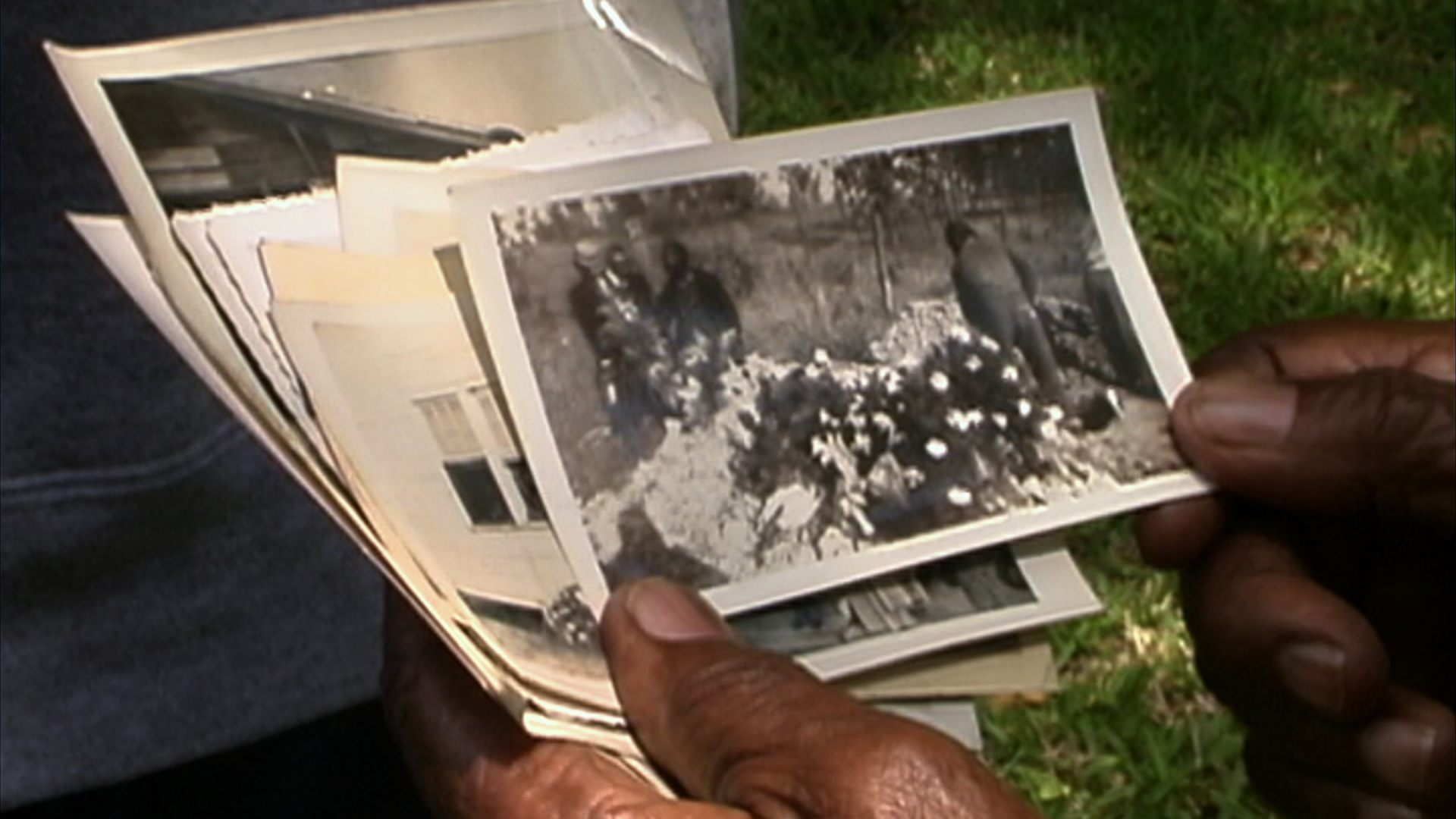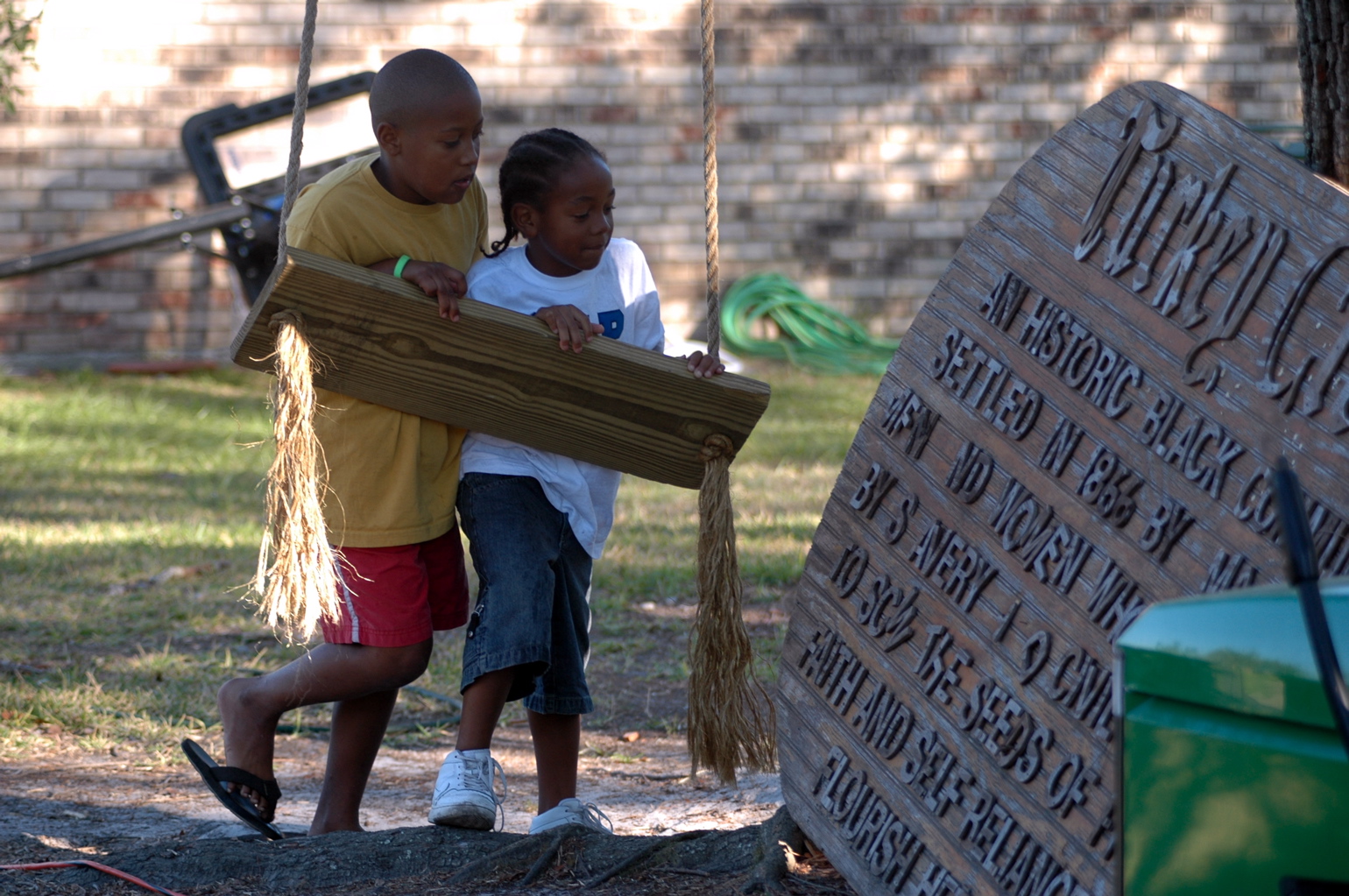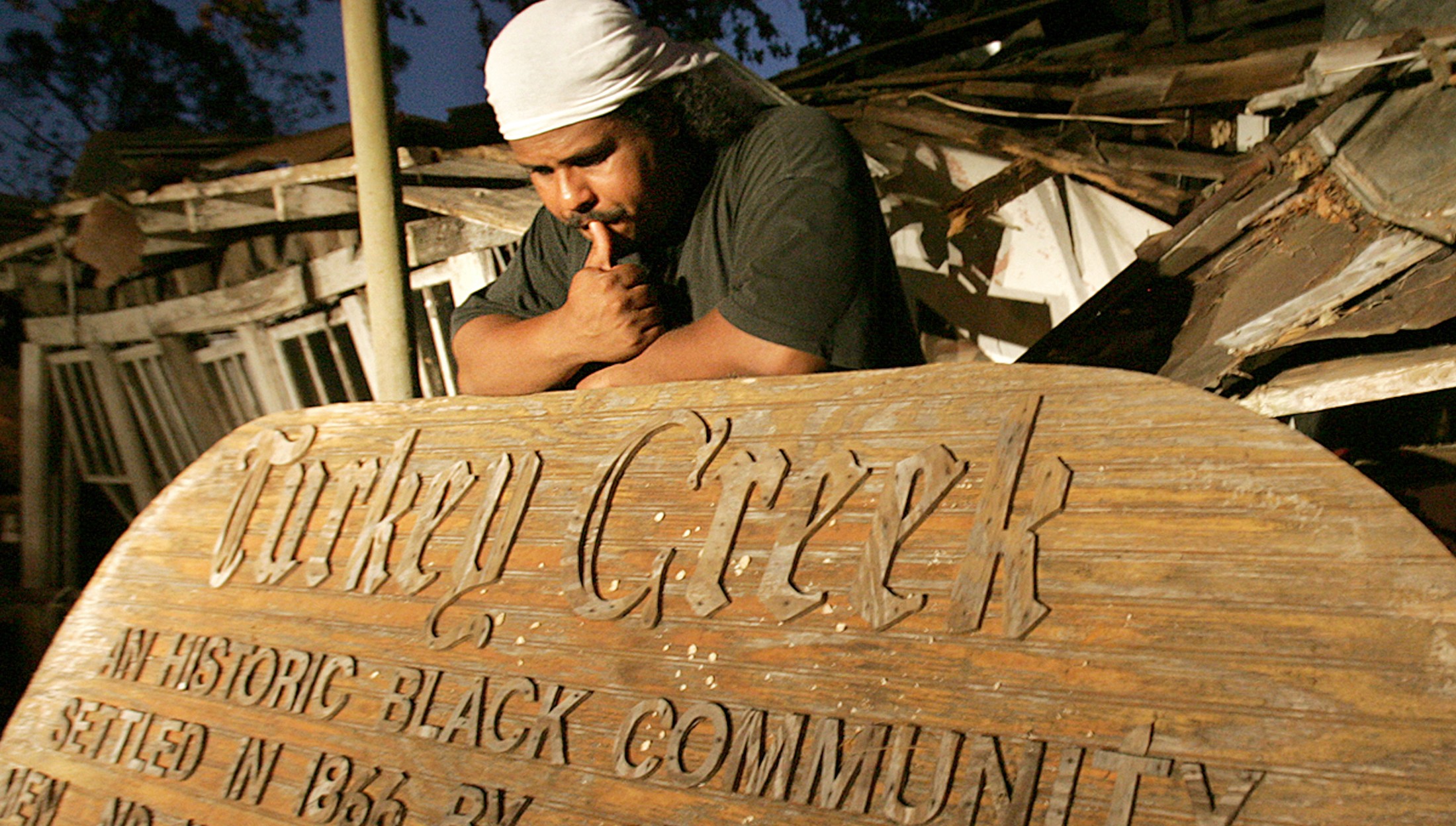We continue to build on these Teaching Resources for Come Hell or High Water. You will find here a Teacher’s Guide developed at the Yale Yale School of Forestry and Environmental Studies, profiles of impact about how the film has been used to promote dialogue from North Carolina to Indonesia, panel discussions and presentations with Derrick Evans and others, webisodes and podcasts about Turkey Creek, an article in Rethinking Schools by a history teacher at Gulfport High School whose students do field studies in Turkey Creek, a bibliography of articles about Turkey Creek, a copy of the Turkey Creek community plan and links to organizations involved, personal essays by Derrick Evans and Reilly Morse, and a 5-minute video extra about environmental justice issues in Turkey Creek.
TEACHER’S GUIDE
Global Environmental Justice Documentaries Teacher’s Guide curated by Amity Doolittle, Senior Lecturer and Research Scientist, Yale School of Forestry and Environmental Studies.
“The importance of Come High or Hell Water lives in its ability to draw connections between civil rights and responsible urban development, environmental conservation, and environmental disaster relief and recovery. The film highlights the personal experiences of local grassroots activists, including their respective strategies for working toward justice in the Turkey Creek community.”
SUGGESTED SUBJECT AREAS:
Activism
African-American Studies
Democracy
Environmental Justice
North American Studies
Oceans and Coasts
Race and Racism
Sociology
Wetlands
Bullfrog Films Community Screening and Discussion Guide
AUDIO VISUAL RESOURCES
America Reframed – Come Hell or High Water Excerpts (2015): One-minute clip from the film shows Derrick Evans talking to his middle school classroom in Boston about the importance of saving his coastal Mississippi community of Turkey Creek, in the face of natural disasters and encroaching development, and another 30-second clip shows a radio show broadcast from the creek.
America ReFramed – Webisode Discussion (2014) : Series host and moderator Natasha Del Toro interviews Come Hell or High Water: The Battle for Turkey Creek subject Derrick Evans and journalist Brentin Mock (CityLab, Grist).
The New Republic – Podcast and Feature Article (2015): Jamil Smith, Senior Editor at The New Republic, interviewed Derrick Evans, journalist Brentin Mock (CityLab, Grist) and Jacqui Patterson (Director of the NAACP Environmental and Climate Justice Program) for a podcast titled It’s Not Mother Nature Who’s Racist . Derrick Evans, Rose Johnson and others were interviewed for an article titled After the Deluge: Building Climate Justice from the Wreckage of Hurricane Katrina
ABC News – Webisode (2015) : Five-minute video titled Turkey Creek: Surviving the Storm, featuring interviews with people in Turkey Creek and footage from Come Hell or High Water.
Public Interest Environmental Law Conference – Keynote Address (2015): Derrick Evans spoke about the use of environmental law in the work to save Turkey Creek. An excerpt was shared and the full address is also available.
Cornell University Africana Forum on Environmental Justice – Panel Discussion (2015): Video of discussion with Leslie Fields (Environmental Justice and Community Partnerships Director, Sierra Club) and Kenneth L. Robinson (Associate Professor and Community Development Specialist at Clemson University).
Environmental Film Festival in the Nation’s Capital – Panel Discussion (2014):: Journalist Brentin Mock moderated a discussion with Derrick Evans, Leslie Fields (Environmental Justice and Community Partnerships Director, Sierra Club), Reilly Morse (Mississippi Center for Justice, Director) and filmmaker Leah Mahan. Highlights from that discussion are on Bridge The Gulf: Come Hell or High Water discussion in D.C.
State of the Reunion – Podcast (2011): Host Al Letson takes listeners on a trip to the Mississippi Gulf Coast for “an hour of stories about the fight for the natural world” in this program for PRX and NPR titled Mississippi Gulf Coast: Defending the Gulf
PROFILES OF IMPACT
Indonesia
American Film Showcase: “Leah Mahan’s Reflections on Indonesia”
Los Angeles
KECT: “From Mississippi to California, Communities Interlink with Come Hell or High Water”
North Carolina
Working Films: “An Organizing Tool for Environmental Justice in the South”
“NC Environmental Justice Film Tour – From Witness To Action”
ARTICLES
Classroom Case Study. In Rethinking Schools, a teacher from Gulfport, Mississippi describes the field work his high school students have done in Turkey Creek.
- Hardy Thames, “Looking for Justice at Turkey Creek,” Rethinking Schools (Winter 2013/2014) [PDF]
Bibliography. A web search will turn up many articles about Turkey Creek. Here are a few to start with:
- Frances Beinecke, “Voice Off the Bayou,” NRDC Switchboard (May 10, 2010)
- Bill Bigelow and Tim Swinehart, “A People’s Curriculum for the Earth
Teaching Climate Change and the Environmental Crisis,” Rethinking Schools (2014) - Rachel Cleetus, “ Climate Equity: Building Resilience for Communities on the Frontlines of Climate Change ,” Union of Concerned Scientists (November 19, 2015)
- Jelani Cobb, “ Race and the Storm ,” The New Yorker (August 24, 2015). This article does not specifically mention Turkey Creek, but the thesis is very relevant: “Katrina didn’t usher in a new narrative about race in America as much as it confirmed an old one.”
- DeNeen L. Brown, “ Turkey Creek, Miss., the town where nobody died in Katrina ,” Washington Post (August 27, 2015)
- Trang Pham-Bui, “ Harrison Co. students work with EPA scientists to study Turkey Creek ,” WLOX (November 17, 2015)
- April Hendricks Killcreas, “ The Power of Community Action: Environmental Justice and Participatory Democracy in Mississippi,” Mississippi Law Journal (VOL. 81:4) [PDF] )
- Katrina Lashley, “ On Becoming Trusted Partners,” Anacostia Community Museum (April 7, 2015)
- Elizabeth Mehren, “After Hurricane, Eyes on Historic Area,” Los Angeles Times (October 2, 2005)
- Trisha Miller, “Crossing Muddy Waters: The Struggle to Preserve a Historic Neighborhood Along Mississippi’s Gulf Coast,” Shelterforce (July/August 2005)
- Brentin Mock, “ Greens Who Want Results Should Take Lessons from the Grassroots ,” Grist (January 22, 2015)
- Reilly Morse, “Come On In This House: Advancing Social Equity in Post-Katrina Mississippi,” Brookings Institution (2011)
- Reilly Morse, “Environmental Justice Through the Eye of Hurricane Katrina,” Joint Center for Political and Economic Studies (2008)
- R.L. Nave, “Drilling Ruling Another Win for Gulf Boosters,” Jackson Free Press (2014)
- Campbell Robertson, “Katrina Victims in Mississippi Get More Aid,” New York Times (November 15, 2010)
- Noah C. Shaw and Joseph D. Rich, “Justice Crosses the Tracks: Settlement Brings Katrina Funds to Low-Income Mississippi Residents,” Sargent Shriver National Center on Poverty Law (May-June 2011)
- Rand Wentworth, “A Time of Change and Innovation,” Saving Land (Winter 2014)
- Mia White, “Black Herstory: Ms. Rose Johnson of Turkey Creek, Mississippi,” Ms. Magazine (February 17, 2012)
- Brian Winter, “For Them, Earth Day Was Late In Coming,” USA TODAY (April 20, 2010)
TURKEY CREEK COMMUNITY PLAN
There is a scene in Come Hell or High Water after Hurricane Katrina when community residents are gathered outside the battered home of Derrick Evan’s great-grandfather, beginning to dream up ideas about how the community should be revitalized. This is the result of those discussions, created with the help of urban and environmental planners at MIG, Inc.
The work to protect and revitalize the Turkey Creek community and watershed has been carried out by a multitude of individuals, organizations and agencies working in collaboration, including:
- Audubon Society, Pascagoula River Audubon Center
- Land Trust for the Mississippi Coastal Plain
- Lawyers Committee for Civil Rights
- Mississippi Center for Justice
- Mississippi Department of Archives and History
- Mississippi Department of Environmental Quality
- Mississippi Department of Transportation, District 6
- Mississippi Museum of Natural Science
- Mount Pleasant United Methodist Church
- North Gulfport Community Land Trust
- Sierra Club, Mississippi Chapter
- Steps Coalition
- Turkey Creek Community Initiatives
- University of Southern Mississippi
- U.S. Environmental Protection Agency, Region 4
PERSONAL ESSAYS
Derrick Evans wrote an essay from the front porch of his grandfather’s home in Turkey Creek just after it was demolished, and Reilly Morse, a lawyer who has worked for years with organizations in the Turkey Creek watershed, wrote a prayer about lessons learned from Katrina.
- Derrick Evans, “Laying My Childhood Home to Rest,” Bridge the Gulf
- Reilly Morse and Tom Teel, “Thank you, Katrina,” Bridge the Gulf
“TOXIC LEGACY” VIDEO
This is a 5-minute companion video to Come Hell or High Water about the creosote factory in the Turkey Creek community. The site has been undergoing a cleanup for decades to protect the community from harmful chemicals. It’s a story that is only touched on briefly in the film. Here are a few more minutes to begin exploring this complex topic of environmental justice.


